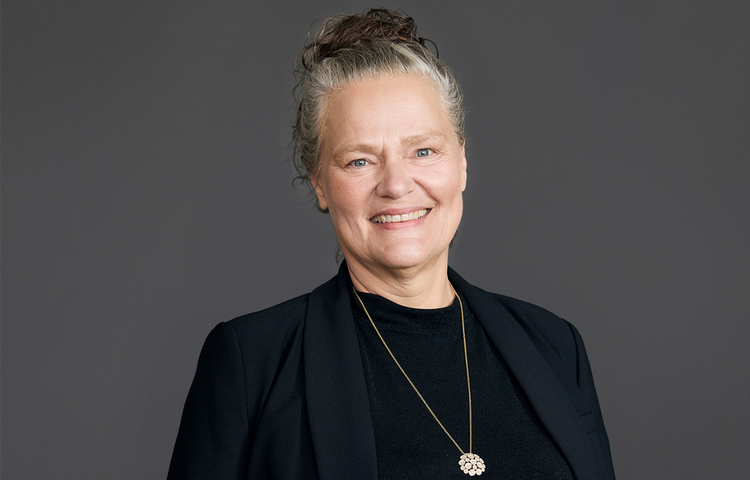CFO + CSO: The alliance that will define the decade

I often hear that there’s not a lot to celebrate in the world of sustainability but you can’t spend 25 years in the sector without being an optimist, and I can’t help feeling that there’s always something positive to hold onto – certainly that’s what we believe at Ecologi. As the dust settles on a busy and successful London Climate Action Week, it’s possible to discern the outline of a powerful new trend taking shape, an unexpected partnership that holds out hope for the continued and accelerated climate action we need to see.
The Chief Financial Officer (CFO) and Chief Sustainability Officer (CSO) – once disparate roles – are beginning to forge an alliance that will define progress as we head towards 2030. Climate transition is no longer a peripheral concern of ethics, marketing or public relations; it has evolved into a core challenge of capital allocation, resilience, risk management, and business model reinvention, squarely placing it within the CFO's purview.
The success of businesses in the coming years will hinge not just on their climate ambitions, but critically, on the effectiveness of the collaboration between their financial and sustainability leadership.
The urgency of this partnership is driven by three undeniable forces:
- Putting a cost on climate risk: The long-held notion that environmental sustainability exists independently of financial performance has unequivocally collapsed. Investors, regulators, and insurers are increasingly embedding climate risks directly into valuations, credit ratings, and the overall cost of capital. Landmark disclosure shifts such as IFRS S1 and S2 are mandating the integration of climate risk into financial reporting. Central banks are deploying climate stress tests to gauge systemic risk, while ESG debt markets are demanding and rewarding tangible, science-aligned outcomes over vague commitments. The implication is profound: CSOs can no longer operate in isolation, and CFOs are being inexorably drawn into the climate conversation, whether prepared or not.
- The rise of transition finance: As key milestones move the medium to near term horizon, net-zero ambitions are under unprecedented scrutiny, not for their ambition and intent, but for the credibility of their underlying transition plans. These plans must be costed, time-bound, and demonstrate a clear pathway to decarbonisation. This includes:
- the crucial alignment of capital expenditure (CAPEX) with low-carbon pathways,
- the rigorous financial modelling of both physical and transition risks through scenario analysis,
- the implementation of internal carbon pricing or shadow pricing to evaluate the return on investment of decarbonisation options, and
- coherent, costed plans for engagement with the voluntary carbon markets and essential beyond value chain mitigation.
This is precisely where the CFO’s financial toolkit becomes indispensable, yet its efficacy is entirely dependent on the CSO's deep understanding of materiality, value chain emissions, and evolving policy landscapes.
- Net zero as a contingent liability: Net-zero commitments, often perceived as aspirational, non-binding statements, are rapidly transforming into potential contingent liabilities – future obligations with significant financial implications if not managed proactively. The stakes are high: unfunded emissions reductions create gaps in capital planning and erode investor confidence. Future compliance costs from tightening regulations, carbon pricing, and mandatory disclosures could result in fines, legal risks, or stranded assets, particularly in carbon-intensive sectors. Furthermore, the rise of climate litigation means that net-zero pledges are increasingly being cited as evidence of liability for emissions or greenwashing. As one CSO said to me at LCAW: "If you're promising to deliver a 1.5°C-aligned pathway but your financials show no allocation to make that happen, you're not just being inconsistent – you’re potentially misleading markets."
How CFOs and CSOs can co-create value
The alliance between CFO and CSO is therefore not about one subsuming the other, but about a symbiotic relationship that unlocks new avenues of value.
- Joint ownership of the transition plan: Instead of the CSO unilaterally developing the sustainability plan for finance to merely sign off on, the process must be one of co-design. This fosters shared understanding, responsibility, and genuine ownership across both risk and opportunity dimensions. Cross-functional working groups should be established to model emissions reduction pathways and their financial impact across key business units.
- Turn climate goals into cap-ex strategy: Sustainability targets must be inextricably linked to long-term investment planning. This means translating ambitious emissions targets into tangible spending priorities. Green investments should be stress-tested using the same rigorous hurdle rates as conventional CAPEX, but with the crucial addition of externalities like carbon pricing scenarios. The goal is to build internal tools that enable CSOs to articulate the business case in financial terms and allow CFOs to integrate a "carbon lens" into their investment decisions.
- Avoid greenhushing through integrated disclosure: In response to escalating regulatory pressure, some companies are opting for "greenhushing" – saying less to avoid potential backlash. This is a misguided strategy. The solution is not silence, but credible, financially grounded storytelling. Sustainability disclosures (e.g., emissions trajectories, SBTi status) should be seamlessly combined with financial signals (e.g., CAPEX alignment, green revenue percentages). This integrated approach builds trust and demonstrates genuine progress.
- Embed climate into core financial processes: Climate considerations must move beyond standalone reports and into the very fabric of financial operations. This entails including emissions impact and decarbonisation levers in annual budgeting cycles, utilising climate scenarios alongside traditional macroeconomic models for scenario planning, and linking executive compensation to climate progress – a CFO-led process informed by robust CSO metrics.
Mutual upskilling: learn each other’s language
For this alliance to thrive, mutual education is paramount. CSOs must gain proficiency in financial concepts such as margins, ROI, CAPEX cycles, and debt structures, as well as understanding financial reporting calendars and audit concerns. Conversely, CFOs must deepen their knowledge of Scope 1-3 emissions, transition taxonomies, climate risk disclosure frameworks, climate scenarios, science-based targets, and practical decarbonisation pathways. I see a lot more CSO / CFO lunches in the future.
It is already happening
Leading companies are already demonstrating the power of this alliance. Ørsted, for instance, saw its CFO and CSO co-lead the monumental transition from an oil and gas company to a renewable energy leader, anchoring CAPEX and financing strategy in a 1.5°C pathway. Unilever has integrated climate into its core financial disclosures and investor engagement, with the CFO actively championing ESG targets. Apple pairs CSO-level supply chain decarbonisation efforts with green bonds and CFO-led investor communications on sustainability.
Final thought
The CFO + CSO alliance is not a mere tactical partnership; it is a structural necessity for businesses navigating the tumultuous lead into 2030. Finance is the universally understood language of power in business, while sustainability articulates the language of the future. Together, this powerful alliance can bridge the gap between climate ambition and climate reality, not only mitigating risks but also unlocking unprecedented opportunities for those who dare to lead. Companies that proactively align their targets, transition plans, and financial accounts will not only build enduring trust but also position themselves as credible and resilient leaders in the emerging low-carbon economy.
Written by Simon Heppner, Chief Sustainability Officer at Ecologi.
Ecologi is the UK's most trusted climate action platform for every step of your climate journey. Speak with one of their climate experts today at www.ecologi.com








Member discussion